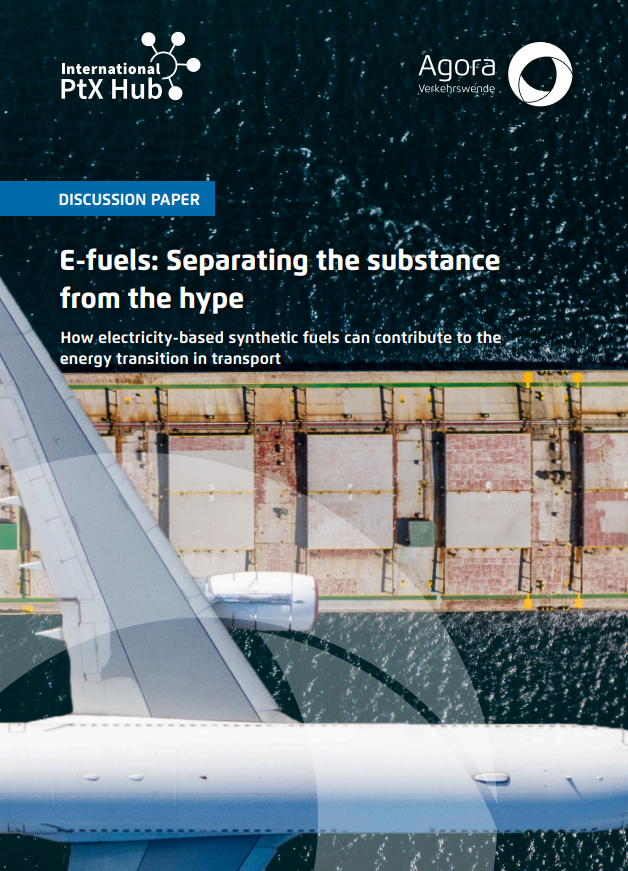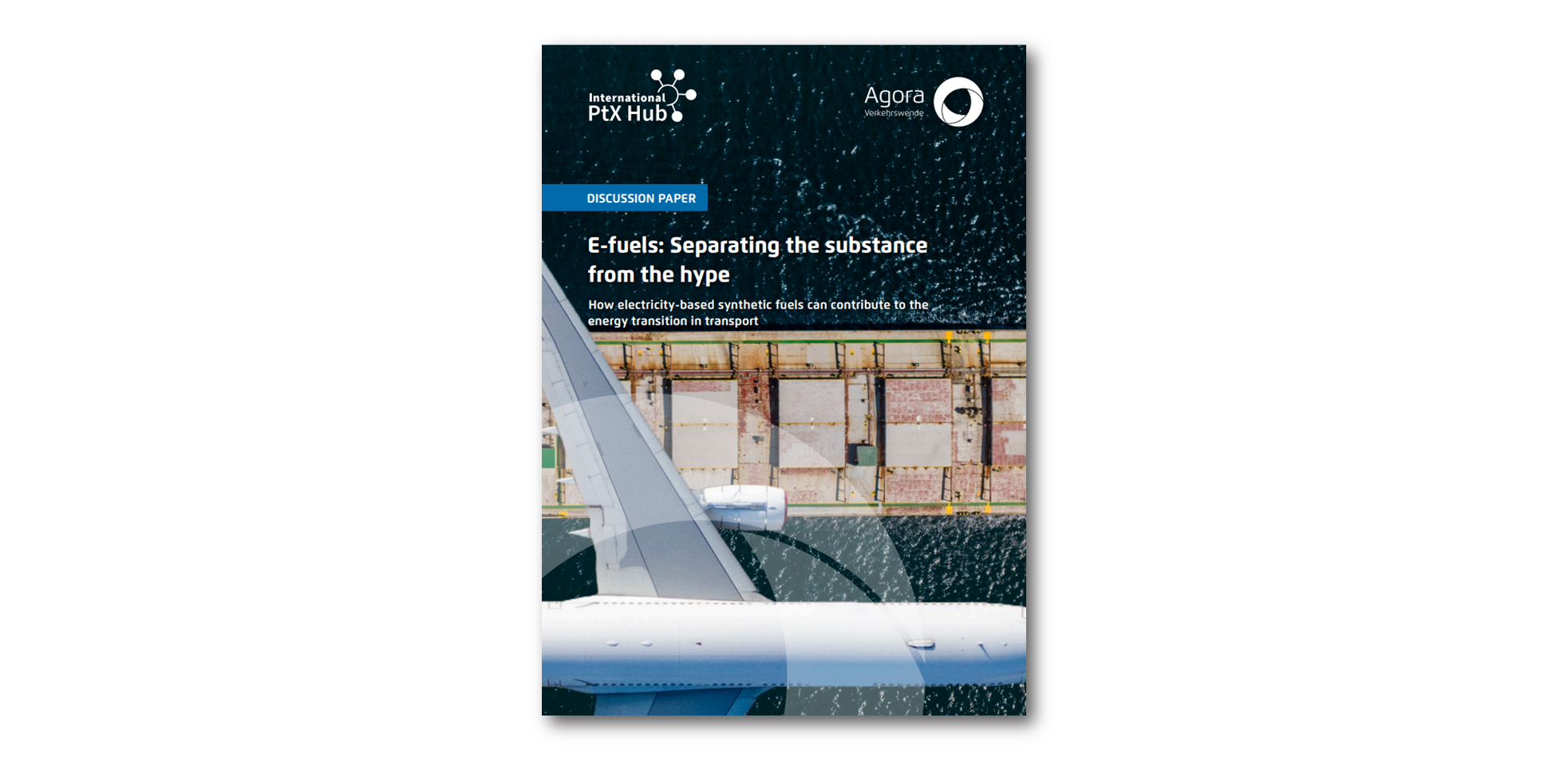Based on current projections, meeting the demand for e-fuels in aviation and shipping alone will be a major challenge. Global production of electricity-based sustainable aviation fuels in 2030 is projected to be only 3% of current EU jet fuel demand, while projected e-methanol production in 2030 is expected to be 5% of current European marine fuel demand. Compared to these limited production capacities, the EU has set ambitious market uptake rates for the next decade: at least 2% of e-fuels should be used in European aviation and shipping by 2032 and 2034 respectively.
A new discussion paper by the German climate policy think tank Agora Verkehrswende and the International PtX Hub summarises the current state of knowledge on the potential of e-fuels to power the energy transition in transport.
According to the study, reliance on e-fuels will not be a viable option for passenger cars and most commercial vehicles. A battery electric vehicle consumes only one-sixth of the renewable electricity required by a combustion engine vehicle running on e-fuels. Electric vehicles must therefore remain the first choice for decarbonising road transport.
Any serious strategy for the development of e-fuels that considers both economic efficiency and climate protection must lay a focus on the preferential allocation of e-fuels to aviation and maritime shipping. The political groundwork for the development of global production must be laid now, and should be informed by clear priorities and international collaboration. E-fuels can represent a valuable supplement to the direct use of renewable electricity in transport – but they are not a full-fledged alternative.
Wiebke Zimmer, Deputy Director of Agora Verkehrswende
Energy efficiency must remain a top priority – even in “sweet spot” regions
Even if e-fuel production is developed in “sweet spot” regions with highly favourable production conditions, energy efficiency and sustainability must remain top priorities. This means that the raw materials for production – electricity, carbon dioxide and water – must be provided in a greenhouse gas-neutral manner. Large amounts of renewable electricity (typically wind and solar) are needed not only to produce hydrogen from water (electrolysis), but also to extract carbon dioxide from the atmosphere (direct air capture) and, especially in sunny, arid regions, to desalinate seawater.
According to the study, the socio-economic aspects of global e-fuel production are no less important. In particular, e-fuel production for export should not conflict with domestic energy needs or economic development, and the interests of local populations must be taken into account. In this context, an important task is to establish widely recognised standards for e-fuels production that ensure social, economic and environmental sustainability.
Read the full discussion paper here:

